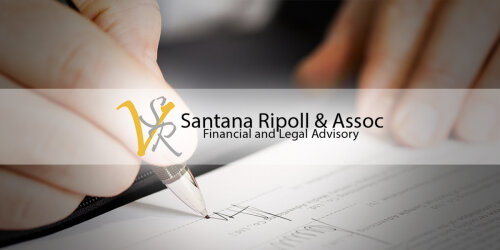Best Landlord & Tenant Lawyers in Puerto Plata
Share your needs with us, get contacted by law firms.
Free. Takes 2 min.
Free Guide to Hiring a Real Estate Lawyer
List of the best lawyers in Puerto Plata, Dominican Republic
About Landlord & Tenant Law in Puerto Plata, Dominican Republic
Landlord and tenant law in Puerto Plata, Dominican Republic, is designed to govern the rental relationships between property owners and tenants. This subset of property law addresses various aspects such as lease agreements, rental payments, tenant rights, eviction procedures, and dispute resolution. The Dominican Republic has specific legal frameworks set out in the Code of Commerce and Civil Code, with additional regulations established by decrees and administrative provisions. Understanding these local laws is crucial for both landlords and tenants to ensure a fair and lawful living arrangement.
Why You May Need a Lawyer
Seeking legal counsel in landlord and tenant matters can be beneficial in several situations. Common scenarios include:
- Drafting or reviewing lease agreements to ensure compliance with local laws and safeguard both parties' interests.
- Negotiating lease terms and resolving contractual disputes amicably and legally.
- Handling eviction procedures to ensure they are conducted lawfully and ethically.
- Addressing tenant complaints about property maintenance or safety issues.
- Filing claims for security deposit disputes, rent arrears, or property damage.
- Defending against unjust eviction or discrimination claims.
- Advising on legal consequences of lease termination from either party.
Local Laws Overview
The legal landscape governing landlord and tenant interactions in Puerto Plata revolves around several key statutes and regulations, including:
- Lease Agreements: These should be documented in writing and mutually agreed upon by both parties, clearly outlining rental terms, responsibilities, and conditions.
- Rental Payments: Local laws specify rules regarding the frequency and methods of rent payment, late fees, and potential rent increases.
- Tenant Rights: Tenants are entitled to a safe, habitable living environment and must be informed of any changes in lease terms.
- Eviction Procedures: Eviction must follow legal procedures and can only occur under specific circumstances like non-payment of rent or violating lease terms.
- Security Deposits: Regulations dictate the use, return, and dispute resolution processes surrounding security deposits.
Frequently Asked Questions
What rights do tenants have in Puerto Plata?
Tenants are entitled to a habitable living environment, timely repairs, protection against wrongful eviction, and notice before any lease changes or rent increases.
What should be included in a lease agreement?
A lease agreement should encompass rental terms, payment details, duration, tenant and landlord responsibilities, policies on deposits, repairs, and conditions for termination.
How is rent determined and adjusted?
Rent is typically determined by mutual agreement prior to signing the lease, and adjustments should adhere to any terms specified in the lease or relevant local law provisions.
What are the legal grounds for eviction?
Legal grounds for eviction often include failure to pay rent, lease violations, causing property damage, or engaging in illegal activities on the premises.
How are security deposits regulated?
Security deposits are typically held to cover potential damages or unpaid rent. The terms regarding their amount, interest, and return must be clearly outlined in the lease.
Are landlords required to make repairs?
Yes, landlords are generally obligated to perform necessary repairs to maintain the property's habitability, unless the need for repairs is due to tenant negligence.
What happens if there's a dispute over property damage?
In the event of a dispute, it’s advisable to review the lease’s damage provisions and seek mediation or legal advice to resolve the matter fairly.
Can the lease be terminated early?
This depends on the lease agreement’s terms. Early termination may be possible if all parties agree, or under specific conditions like breach of agreement.
How should disputes between landlords and tenants be resolved?
Disputes may be addressed through negotiation, mediation, or, if necessary, litigation. Legal advice can help determine the most effective approach.
Are there distinct laws in Puerto Plata compared to other areas?
While the national laws are consistent, local decrees or interpretations may cause slight variations. Consulting a local lawyer can provide specific insights.
Additional Resources
For further support on landlord and tenant issues in Puerto Plata, consider reaching out to:
- Local Bar Associations: They can provide lists of qualified lawyers specializing in real estate law.
- Community Legal Clinics: Such clinics may offer free or reduced-cost legal advice and support.
- Government Housing Offices: Offices provide information and mediation services for rental disputes.
Next Steps
If you find yourself requiring legal assistance regarding landlord and tenant matters in Puerto Plata:
- Consult a Lawyer: Reach out to a legal professional specializing in property law to discuss your situation and obtain advice.
- Gather Documentation: Keep copies of all relevant documents including lease agreements, correspondence, and evidence of disputes or payments.
- Research Your Rights: Familiarize yourself with tenant and landlord rights under Dominican law to better understand your position.
- Consider Mediation: Before pursuing legal action, seek mediation services to potentially resolve disputes amicably.
Lawzana helps you find the best lawyers and law firms in Puerto Plata through a curated and pre-screened list of qualified legal professionals. Our platform offers rankings and detailed profiles of attorneys and law firms, allowing you to compare based on practice areas, including Landlord & Tenant, experience, and client feedback.
Each profile includes a description of the firm's areas of practice, client reviews, team members and partners, year of establishment, spoken languages, office locations, contact information, social media presence, and any published articles or resources. Most firms on our platform speak English and are experienced in both local and international legal matters.
Get a quote from top-rated law firms in Puerto Plata, Dominican Republic — quickly, securely, and without unnecessary hassle.
Disclaimer:
The information provided on this page is for general informational purposes only and does not constitute legal advice. While we strive to ensure the accuracy and relevance of the content, legal information may change over time, and interpretations of the law can vary. You should always consult with a qualified legal professional for advice specific to your situation.
We disclaim all liability for actions taken or not taken based on the content of this page. If you believe any information is incorrect or outdated, please contact us, and we will review and update it where appropriate.









